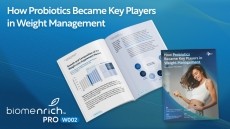High fat and sugar diet raises liver disease risk
problems, confirms a new study.
This latest research fuels an ever-growing fire that a diet with high levels of sugar and fat intake may contribute to obesity-related liver disease.
Science is dedicating increasing time and resources to improve our knowledge of the growing phenomenon of obesity. Defined as a Body Mass Index over 30, obesity is a risk factor for a host of illnesses including heart disease, hypertension, diabetes and respiratory disease.
But fresh figures released recently show numbers are far from levelling off, with more than 200 million adults across the EU overweight or obese.
And far from being an adult problem, the number of European kids overweight is rising by a hefty 400,000 a year, according to the data from the International Obesity Task Force (IOFT).
Adding salt into the wounds, costs are high. Estimates claim obesity consumes about 5 per cent of total health care budgets in the EU.
Encouraged by governments and consumer organisations, the food industry is now driven to push out new food products that target the increasingly health conscious consumer. And such formulations will label hard on the low sugar and low fat angle.
For this latest study, researchers at the Johns Hopkins University in the US fed mice with "commercial diets" with different nutritional contents for four to twelve weeks.
The scientists then isolated hepatic mononuclear cells, which they incubated and evaluated by flow cytometry. They also isolated total hepatic RNA for analysis. Finally, they measured levels of serum alanine aminotransferases (ALT), a marker of liver injury.
NKT cells originate in the thymus but accumulate in the liver where they regulate the production of cytokines (cell proteins).
A previous study of leptin-deficient obese mice noted depleted levels of NKT cells.
The researchers found that the mice on high fat diets gained significantly more weight than the mice on normal diets, and they also developed fatty livers.
"Their hepatic mononuclear cells revealed significantly fewer hepatic CD4+ NKT cells," note the researchers, adding that subsequent tests revealed doubled production of IL-12, a cytokine that reduces NKT cell viability, as well as increased NKT cell death.
High-fat diets correlate to a "chronic inflammatory state in the liver, which promotes chronic liver disease," conclude the researchers.
The results also showed that high fat diets increased the production of hepatic pro-inflammatory cytokine. When the researchers induced liver injury in mice on the varying diets, they found that high fat-diet mice experienced more inflammation and necrosis than normal-diet mice.
But they warn that further evaluation of other mouse strains, different age groups and genders is necessary to clarify if any of the factors studied "modulate susceptibility to diet-related changes in hepatic NKT cells."
Full findings are published in the October 2005 issue of Hepatology.













